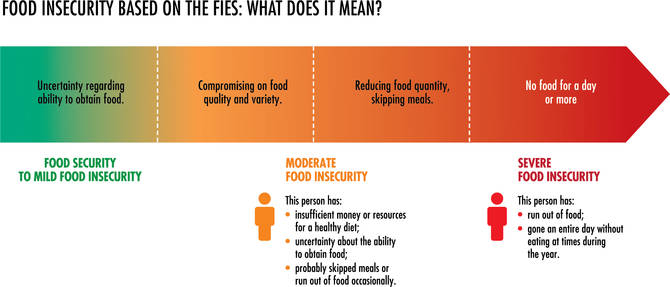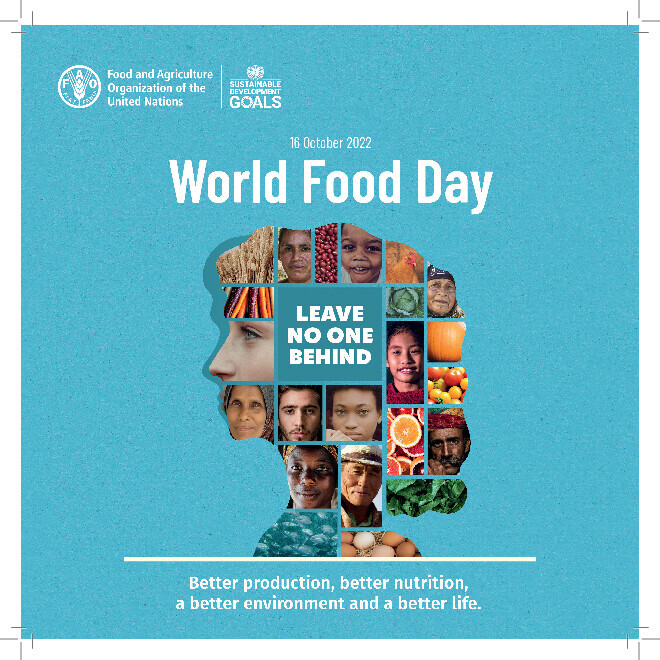#WorldFoodDay2022 is one of the most celebrated days in the UN calendar of activities and aims to raise awareness on the need to join forces in creating a better and more sustainable future for all.
We need to focus on ensuring that development, innovation and economic growth reach everyone and #LeaveNoOneBehind.
This is the slogan with which FAO wants to raise awareness on this World Food Day, 16th October 2022 of the serious global problem of food insecurity and malnutrition and the need to work together to create a better and more sustainable future for all.
Recent economic crises, conflict, inequality and subsequent food price rises make access to food difficult. Coupled with a lack of adequate food supply, it creates even more inequality. All these situations are affecting food security and preventing a path towards ending hunger and malnutrition and meeting Sustainable Development Goal 2: Zero hunger, ending all forms of malnutrition and ensuring access for all people to a healthy, nutritious and sufficient diet.

The reality right now is that 3 billion people are at least moderately food insecure: they cannot regularly afford even an inexpensive healthy diet:

What is Food Insecurity?
In our interconnected world, we cannot ignore the gravity of the situation and the need to take action to address the lack of a fair and accessible supply of nutritious food. It goes without saying that holistic food systems are the driving force to end food insecurity and the prevalence of malnutrition. Food security is affected by several factors which, through the cost of food, subsequently influences food systems, food production, supply chains and food chain environments as well as consumer demand and food policies. These various factors internal to the food system and external events that shape the current system cannot be addressed isolated from each other and must be considered in tandem.
The rate of growth of food insecurity and the prevalence of all existing forms of malnutrition indicate a trend far away from the 2030 target. Especially, given the complications arising from the current political and economic situation and the lasting effects of the Covid-19 pandemic. Actions are more than necessary to achieve resilience against destabilizing factors and to ensure that food systems can deliver affordable, healthy, inclusive and sustainable diets.
To be part of the movement for a positive change, we can, for example, rediscover ourselves as part of the process and of the system, learning about sustainable diets, changing the way we eat, being part of the regeneration and transformation of the food system that is more than crucial to achieve a sustainable future. The challenges we face and the evaluation of the causes and interconnections allows us to better understand global actions, offering a unique learning opportunity for future situations and to establish new and better ways of doing things. We have a path to follow in which we leave no one behind on the journey. So we need to establish innovate ways to cope with the various hurdles that halt our progress towards an inclusive and food-secure future.
FUSILLI is already part of this change by contributing to the transition of food systems in 12 pan-European cities. Through development and support of food policies that favour and protect the natural environment in our Living Labs, we can promote behaviour change in both consumers and actors of the food chain. In this way, FUSILLI establishes replicable sustainable urban food plans to secure a holistic food system transformation.
